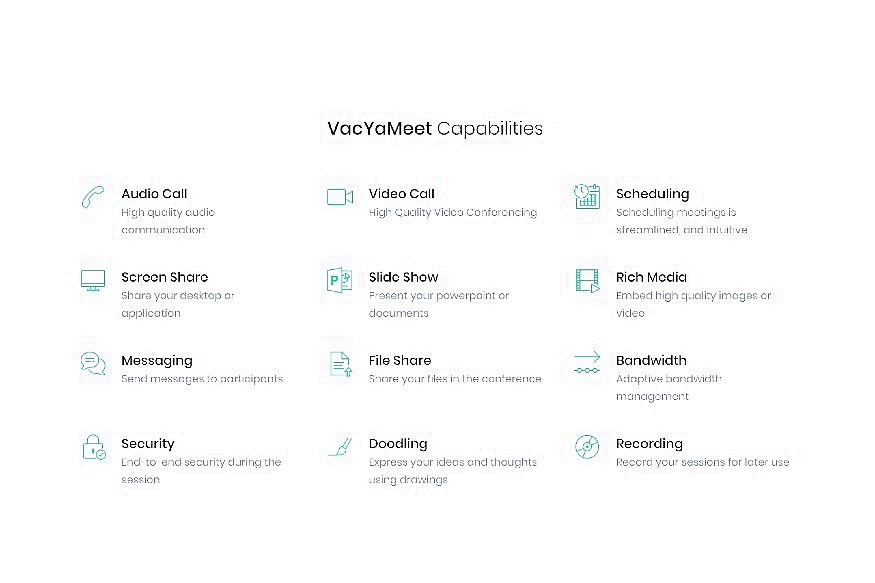
views
As the Ministry of Electronics and IT (MeitY)’s homegrown video conferencing app challenge deadline draws closer, multiple lesser known Indian video conferencing apps and services are gearing up for the opportunity to significantly grow their businesses. At the focal point of this growth is privacy, the key reason for which the Indian government proceeded to ban global video conferencing giants such as Zoom and Google Meet, and opt for a talent hunt to build India’s own, homegrown video conferencing service.
All thanks to Zoom?
The opportunity that has risen for Indian startups working on video conferencing apps is, in ways, due to the severe privacy and data security gaffes that hammered Zoom through March and April. EnableX, one of the startups participating in MeitY’s video conferencing app challenge, is looking to cash in on this as well.
Speaking to News18, Pankaj Gupta, founder and CEO of EnableX, says, “We employ AES 256-bit encryption over DTLS-SRTP for audio, video and shared content. Regardless of device types or participants, all media traffic is encrypted. All signalling is carried over standard https protocol, and EnableX supports industry-standard PKI certificate validation.”

Troop Messenger is another startup that is also vying for MeitY’s award, with its video conferencing service, Cattle Call. While the latter was started as part of the overall Troop Messenger suite, it is now being segregated into a standalone video calling application that may be released by August 2020. Its founder and chief executive, Sudhir Naidu, tells News18 that he does have end-to-end encryption in mind as a feature to be offered via Cattle Call. As of now, the service will offer DTLS-SRTP media encryption standard, which is a common, end-to-server grade technique used to encrypt all chats and media, to begin with.
“Apart from this, we will also offer PIN unlock, fingerprint unlock, face unlock and two-factor authentication for accessing critical data,” adds Naidu.
A third such startup is VacYa, which has already been offering scalable services to enterprises globally via VacYaChat (text messaging) and VacYaFone (VoIP calling). With the increasing demand for video conferencing services around the world, the startup has introduced VacYaMeet, a customisable video conferencing service that also offers end-to-end encryption as a key feature in its portfolio.
Hosting the service on a company's own servers automatically makes it more secure.
Chandra Potineni, founder of VacYa, states that his startup has developed a ‘double lock strategy’ to be used specifically for the video conferencing service, and has applied for a patent for the same. With the patent pending as of now, Potineni did not divulge further details about exactly how the technology works. To further instill confidence among enterprises, VacYa allows its clients to host the service on their own servers, therefore keeping data even more locally, and being compliant to more stringent security rules. That said, while others are keeping the window of consumer-end applications open, VacYa is strictly focusing on offering an enterprise service.

Anuj Garg, founder of Inscripts, also built a video conferencing app with his team that recently went viral. Say Namaste, as the service is being called, is an entirely new service from a startup that found popularity in the enterprise space due to CometChat. In an earlier interview with News18, Garg stated that the company is exploring multiple encryption options, undertaking an independent security audit and looking at features like two-factor authentication, as part of their features suite. Garg, however, also stated that smaller scale video conferencing apps from Indian startups should not be compared with global giants such as Zoom and Google Meet, at least until the scope of business becomes more even.
Not new, but growing
What’s important to note is that for each of these startups, being in the communications space is not new per se. EnableX’s Gupta states that the company’s main platform went live in 2019, and already has over 1,000 enterprise users across Asia. EnableX offers a white label platform that companies can customise to their needs, and also integrate third party services into.
“The video conferencing service, on the other hand, has been rolled out very recently, and we are currently offering it as a free to try service. It has been rolled out in phases over the last few days, and we have about 100 of our customers using it,” adds Gupta. With MeitY’s challenge, Gupta believes that EnableX can benefit significantly in terms of its outreach and visibility. The entire platform was built over three years out of offices in Noida and Bangalore. However, the video conferencing solution did not take that long to prune.
The aim is to leverage prior experience in the communications and signalling space, and invest it in video conferencing.
Troop Messenger’s Naidu also affirms that even his company isn’t new, and has been around for over two years now. In fact, he further states that before expanding with Troop Messenger in 2017, he has been involved in the communication technology space for “over 18 years”. It is this experience that Naidu aims to leverage to provide an on-premise video conferencing model of Cattle Call, alongside features such as the future option of allowing companies to add Troop’s Cattle Call as a third party service to cloud-hosted enterprise software.
While VacYaMeet is significantly younger than the rest, it too was conceptualised well before the Covid-19 pandemic. Potineni says, “The solution has been available to the public for the past two months in beta testing, and has over 30,000 hours of testing.” He further stated that the founders of VacYa have “several hundred” patents between them. VacYa is primarily based in India, but also has a division in USA as it eyes international expansion.
Inscripts’ Garg has also been in the field for a while, with its original product, CometChat, now being over a decade old. “Even beyond the Covid-19 crisis, I believe many companies will be shifting to a remote working model, which is what makes this a super lucrative business,” he says. Garg is not alone — every participant that News18 spoke to is looking at a significant expansion phase of video conferencing services, and hence targeting enterprises squarely with their recently developed offerings.
With privacy in focus, the government’s challenge may just give this sector a much needed boost, and bring a host of Indian video conferencing services at par with global offerings.
















Comments
0 comment